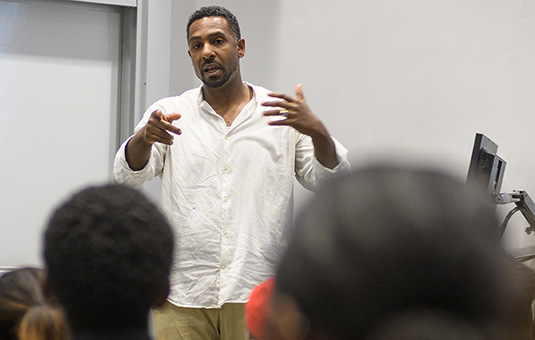
History
Gazification and Genocide by Attrition in Artsakh/Nagorno Karabakh and the Occupied Palestinian Territories
Document Type
Article
Abstract
“Who Remembers the Armenians?”
I remember them
and I ride the nightmare bus with them
each night
and my coffee, this morning
I'm drinking it with them
You, murderer -
Who remembers you?
— Najwan Darwish, Nothing More to Lose (2014)
Najwan Darwish’s 2014 poem powerfully connects the genocide perpetrated against the Ottoman Armenians (1915–1923) to the Palestinians (1948-); for the latter, the organized process of dispossession and assault on life was only recently labelled genocide. Concise in its words, the poem is a resounding expression of solidarity that emerges in the form of morning coffee between close friends. Hauntingly, its title references Hitler’s “Obersalzberg Speech” delivered on the eve of the invasion of Poland that asked: “Who after all is today speaking about the destruction of the Armenians?” The question lingers 85 years on. Written the same year as Israel’s 2014 “Operation Protective Edge” assault on Gaza, Darwish suggests that the amnesia of the present hastens a cyclical, nauseating repetition of the past. He ends his poem by addressing the perpetrator, compelling us to point our collective fingers at him and scream: “J’accuse!”
Considering the historical linkage made in Darwish’s poem – words frequently shared by Armenian and Palestinian activists – this essay offers preliminary comparisons of genocidal warfare used by Israel and Azerbaijan over the last 18 months.
Publication Title
Journal of Genocide Research
Publication Date
2024
ISSN
1462-3528
DOI
10.1080/14623528.2024.2377871
Keywords
Gaza, Palestine, Israel, genocide, Armenian genocide, Artsakh, Nagorno-Karabagh, Israeli-Palestinian conflict
Repository Citation
Semerdjian, Elyse, "Gazification and Genocide by Attrition in Artsakh/Nagorno Karabakh and the Occupied Palestinian Territories" (2024). History. 110.
https://commons.clarku.edu/historyfac/110


